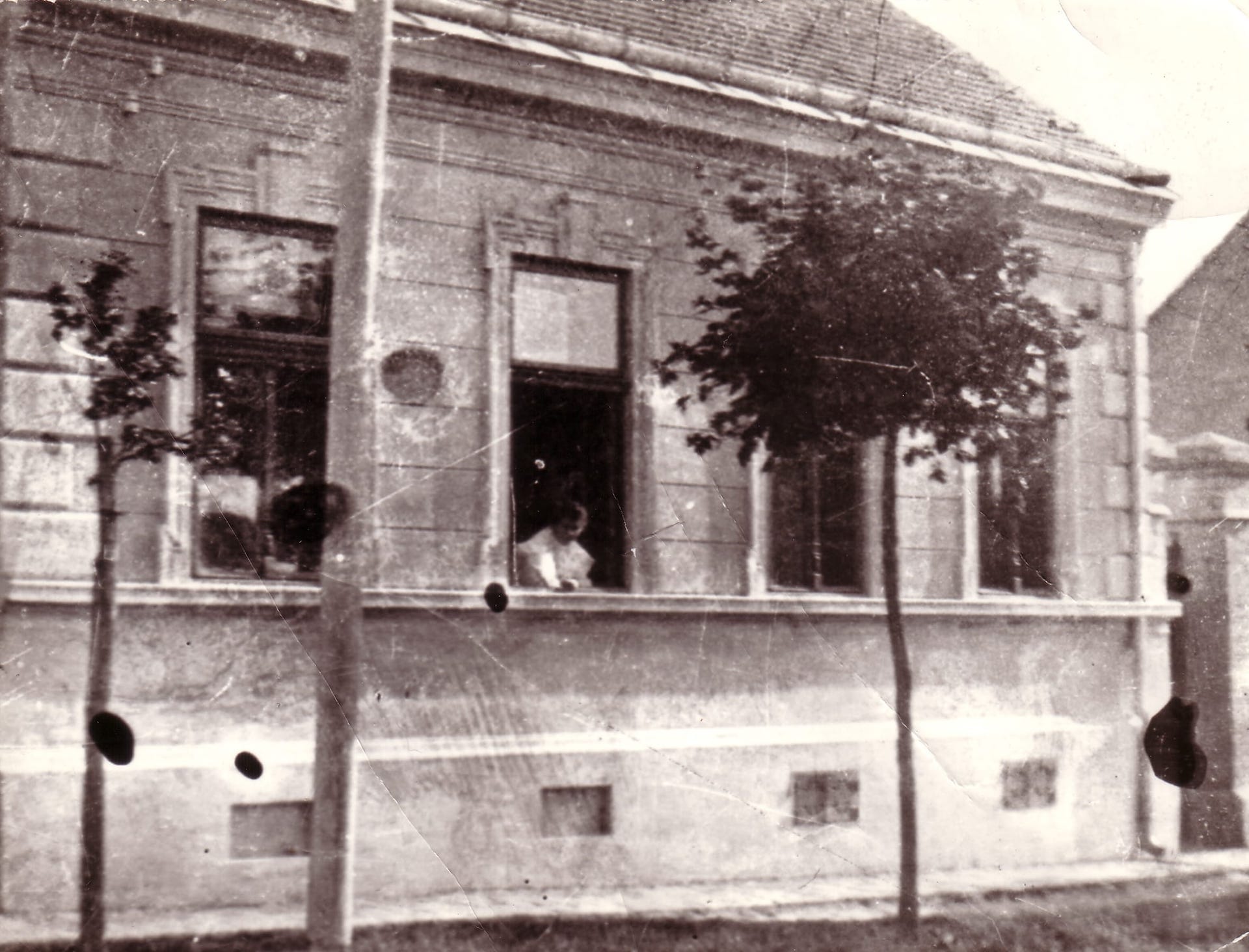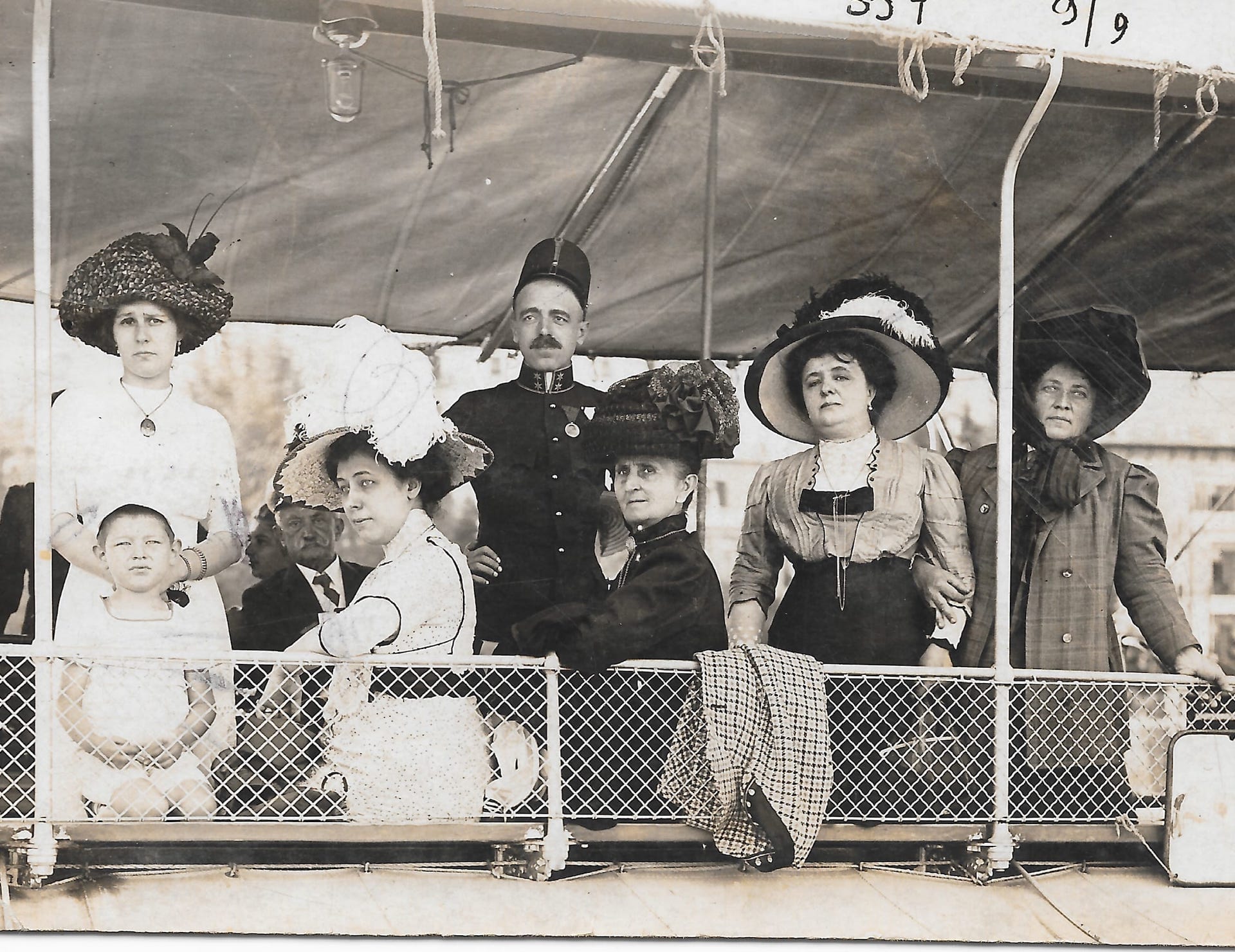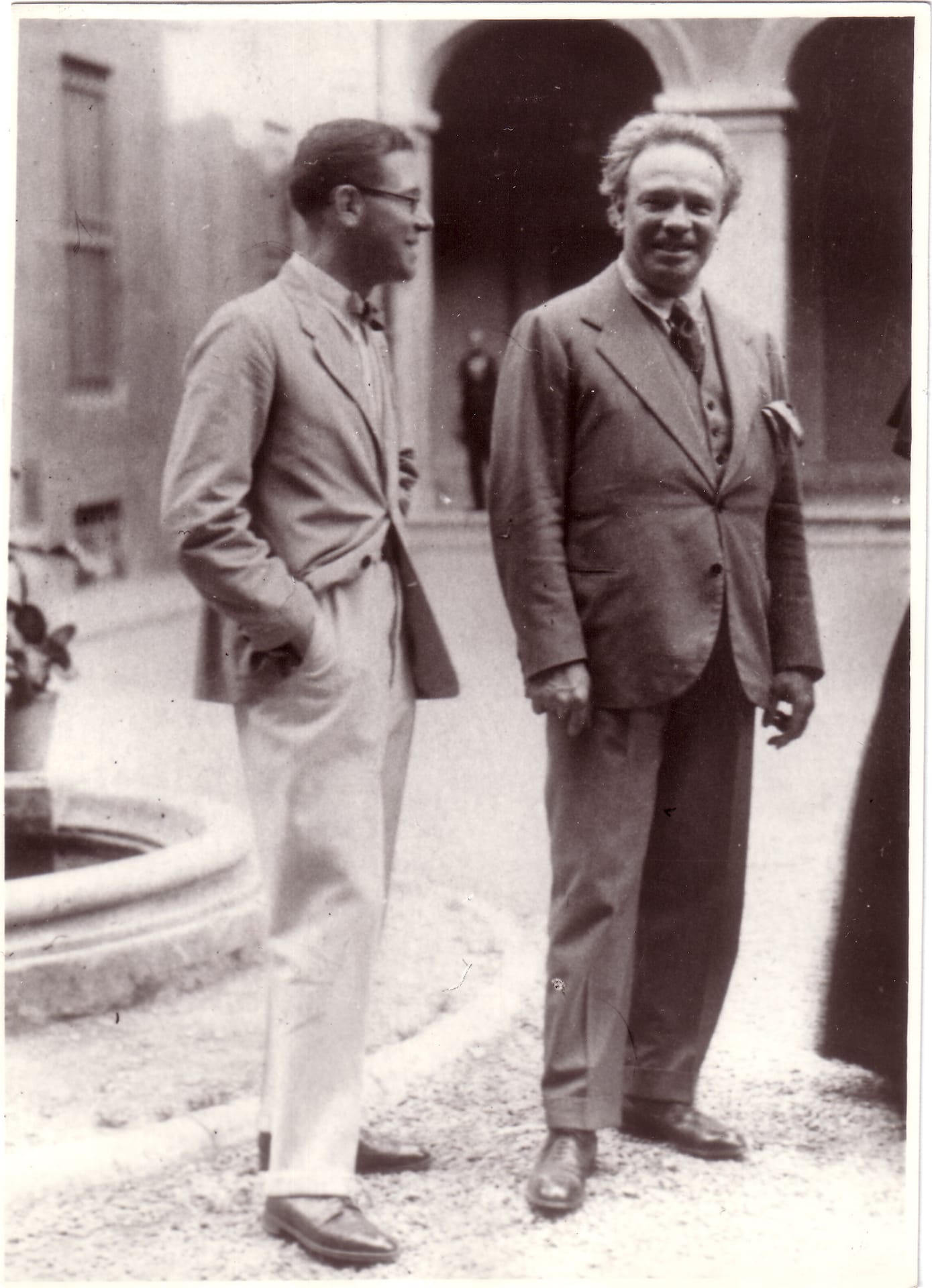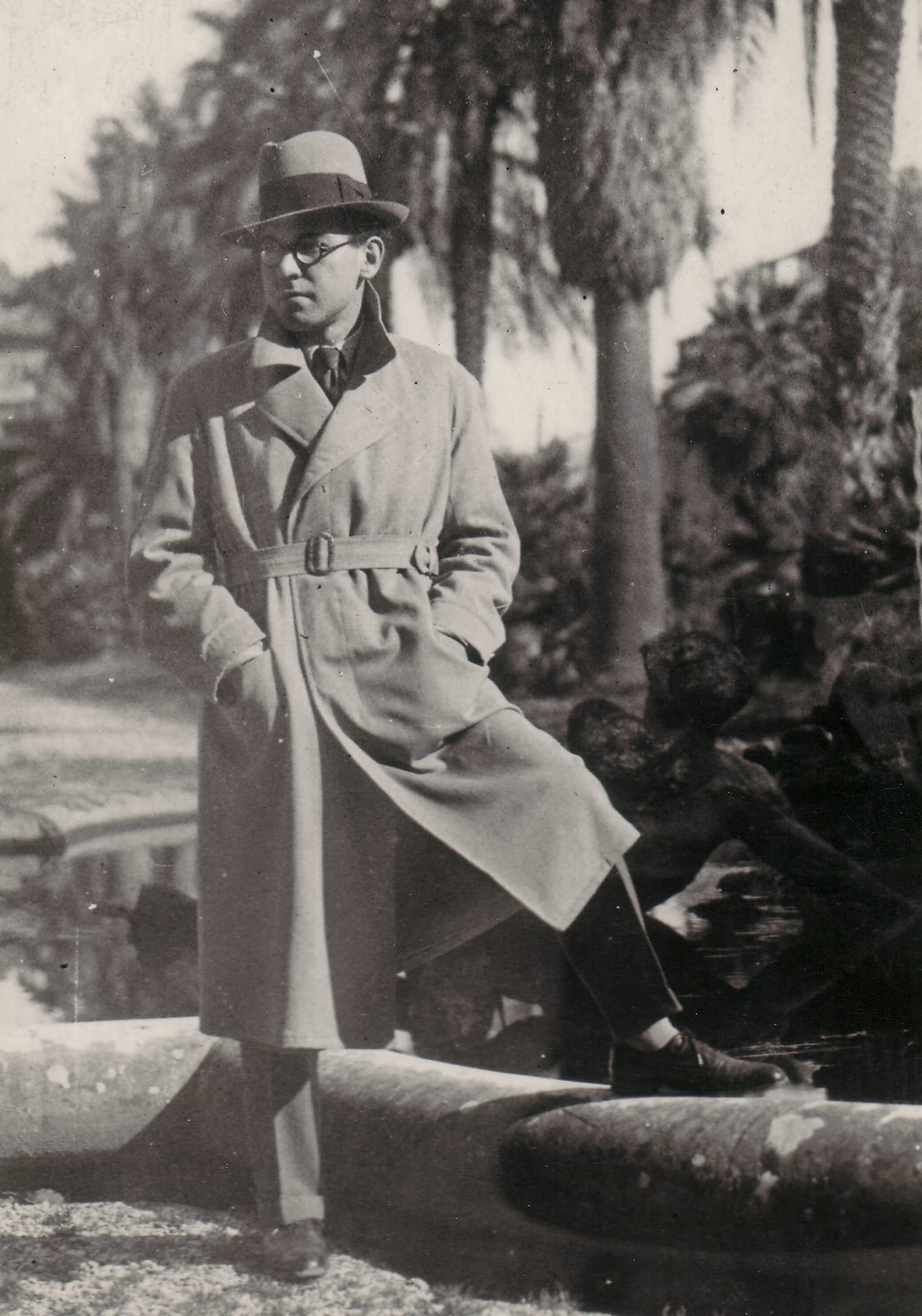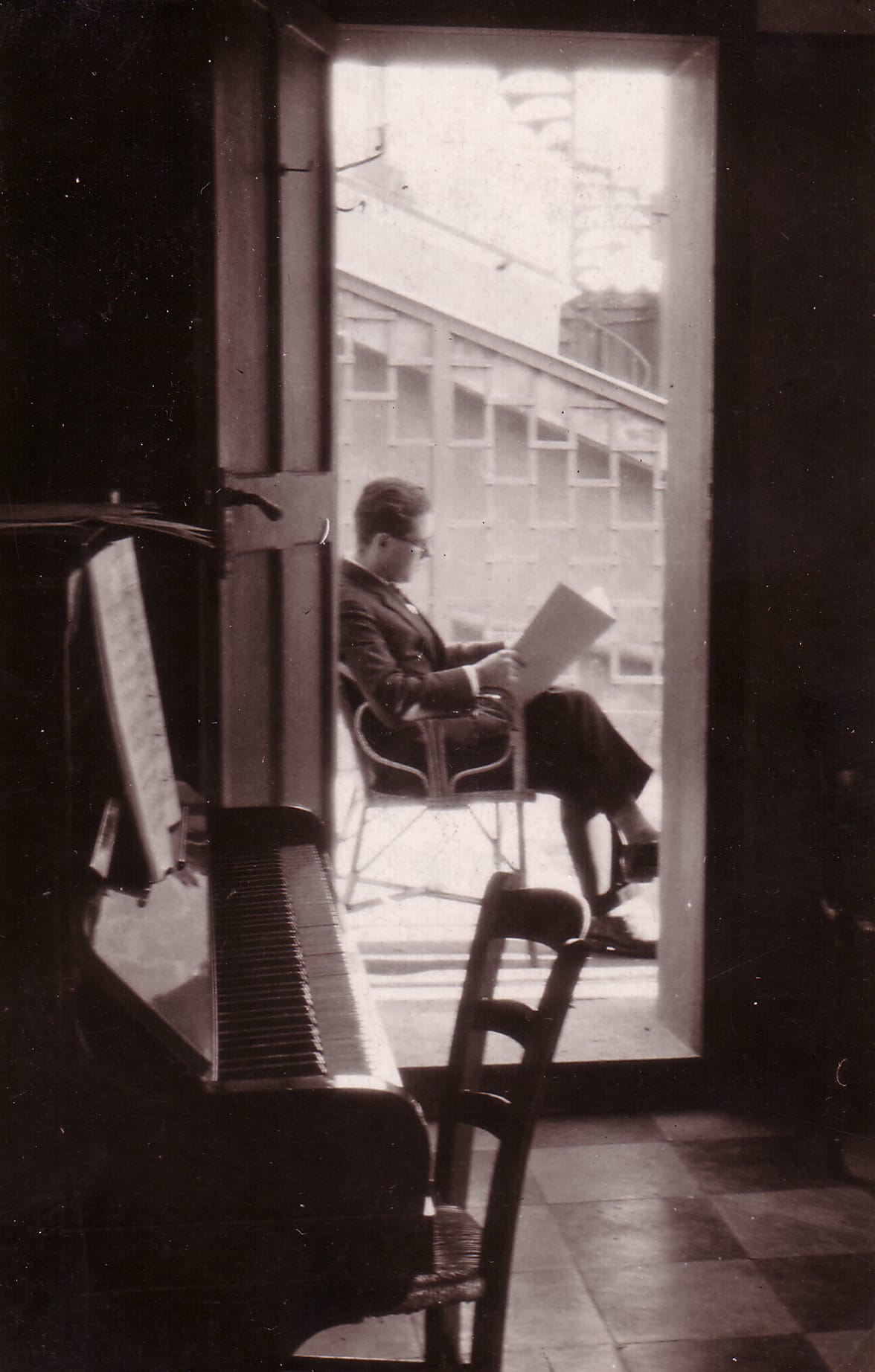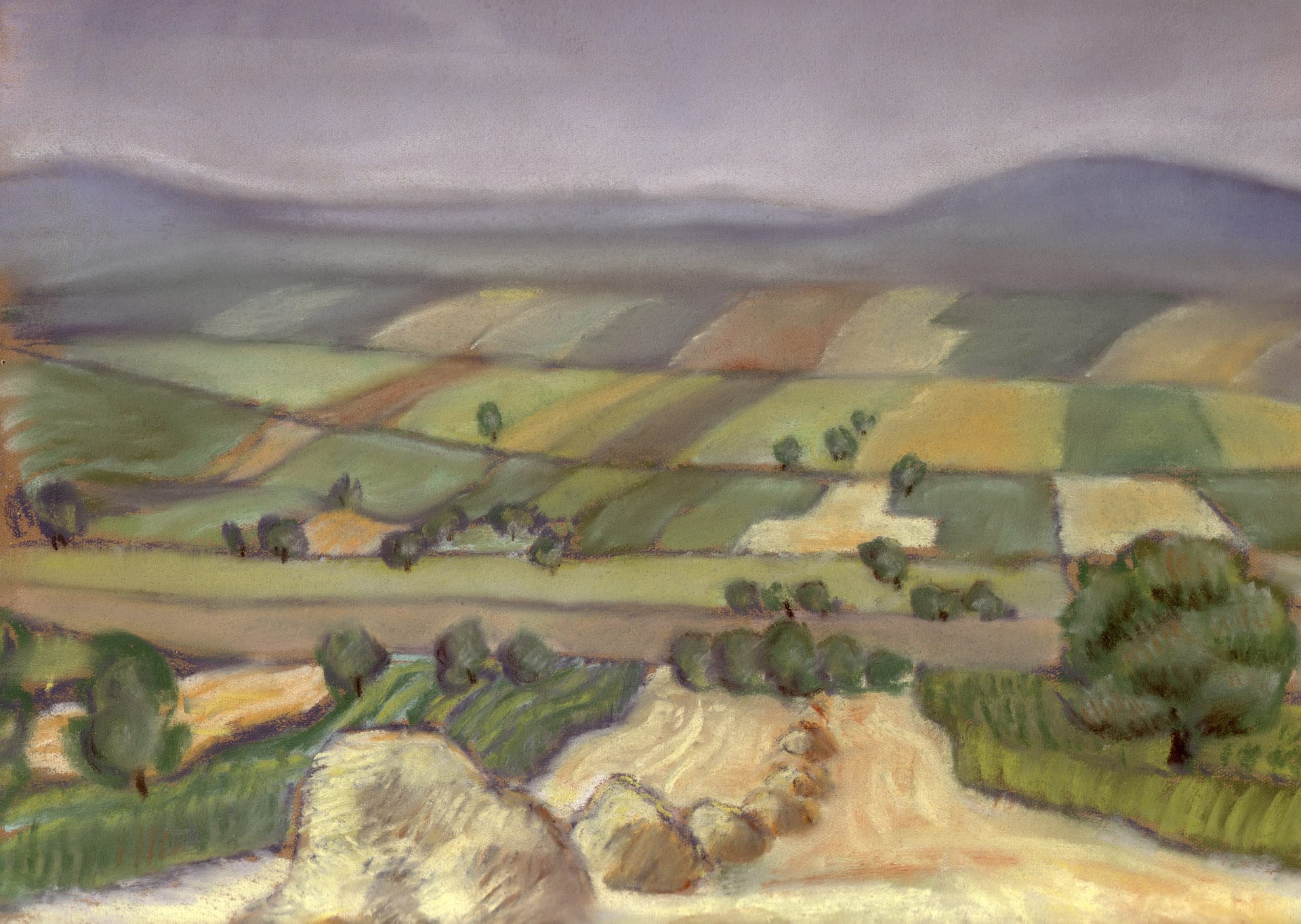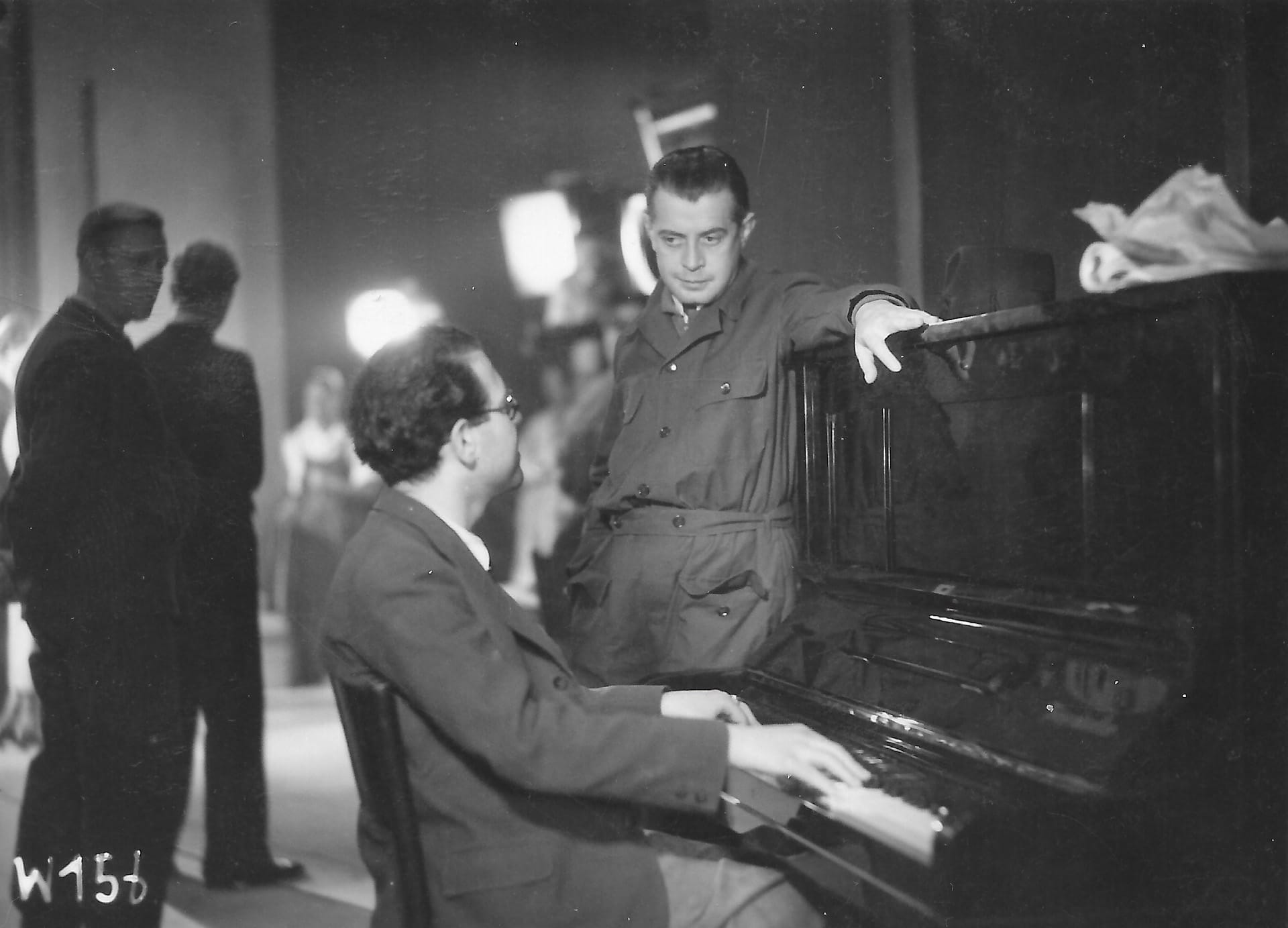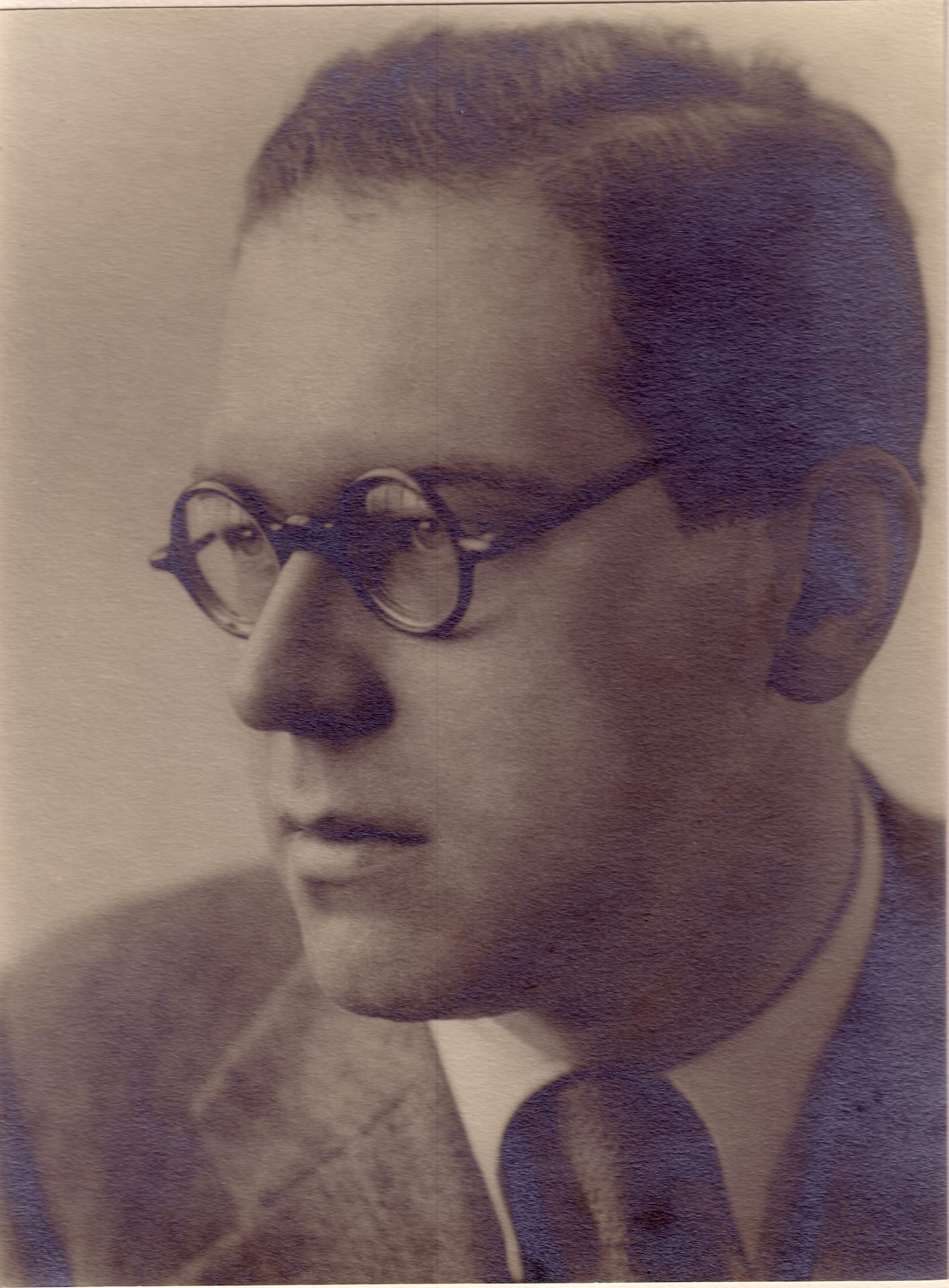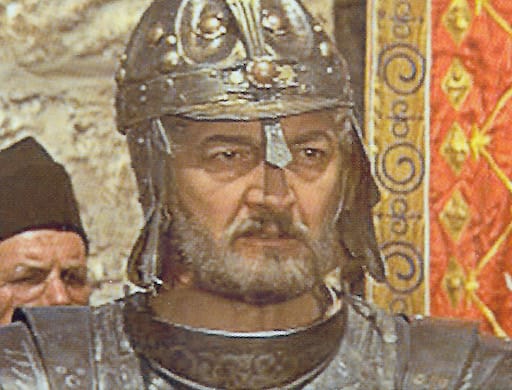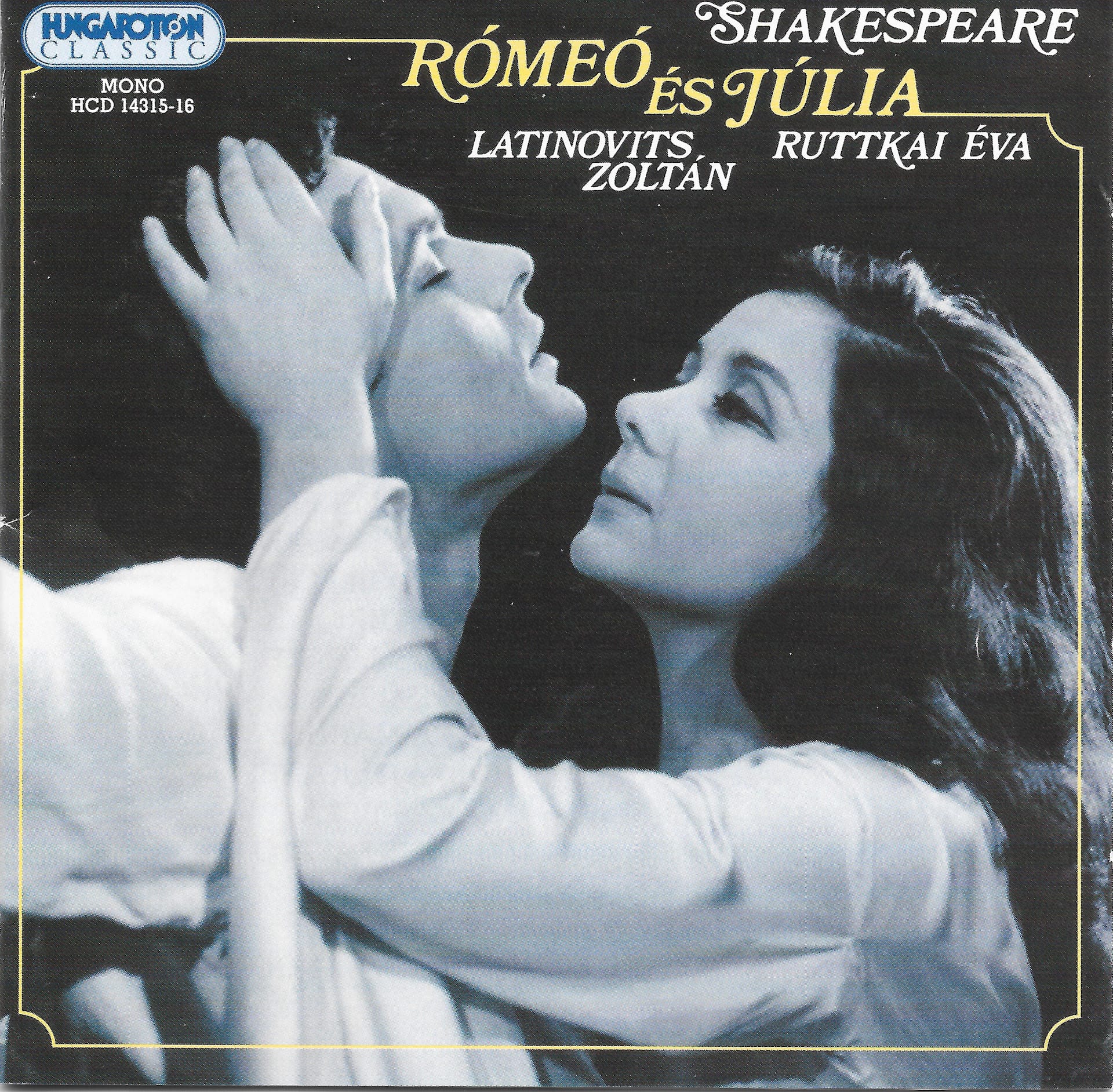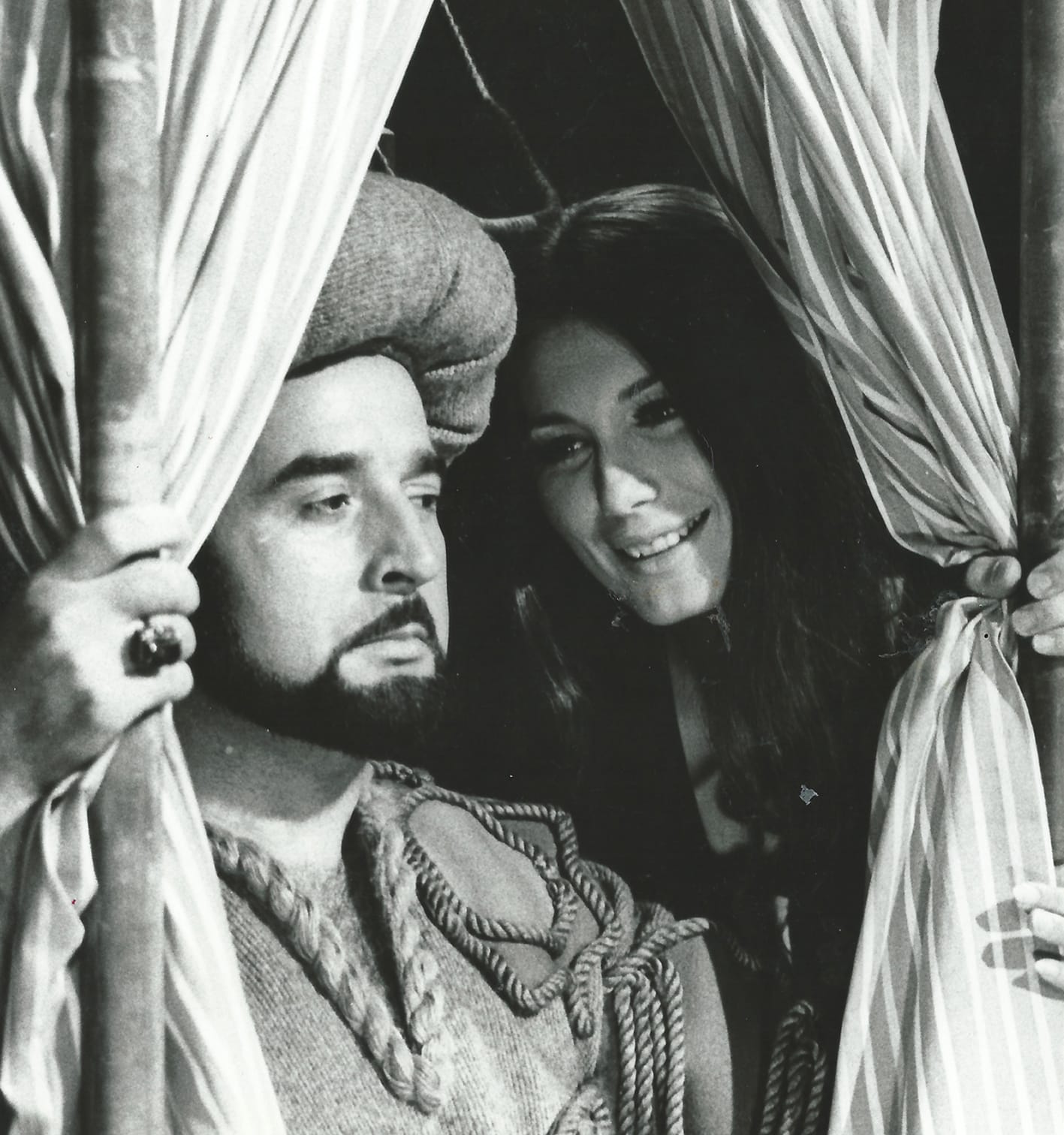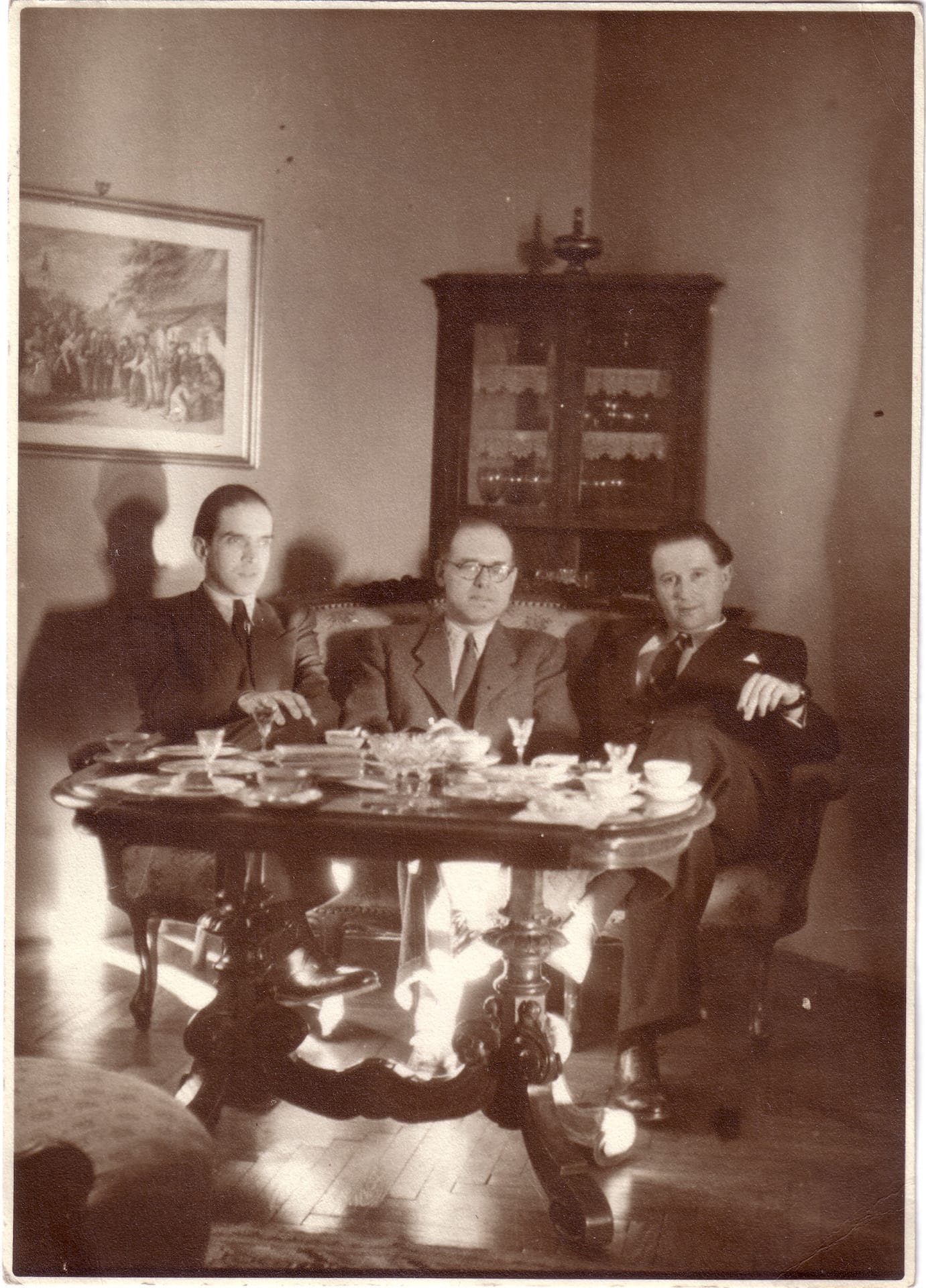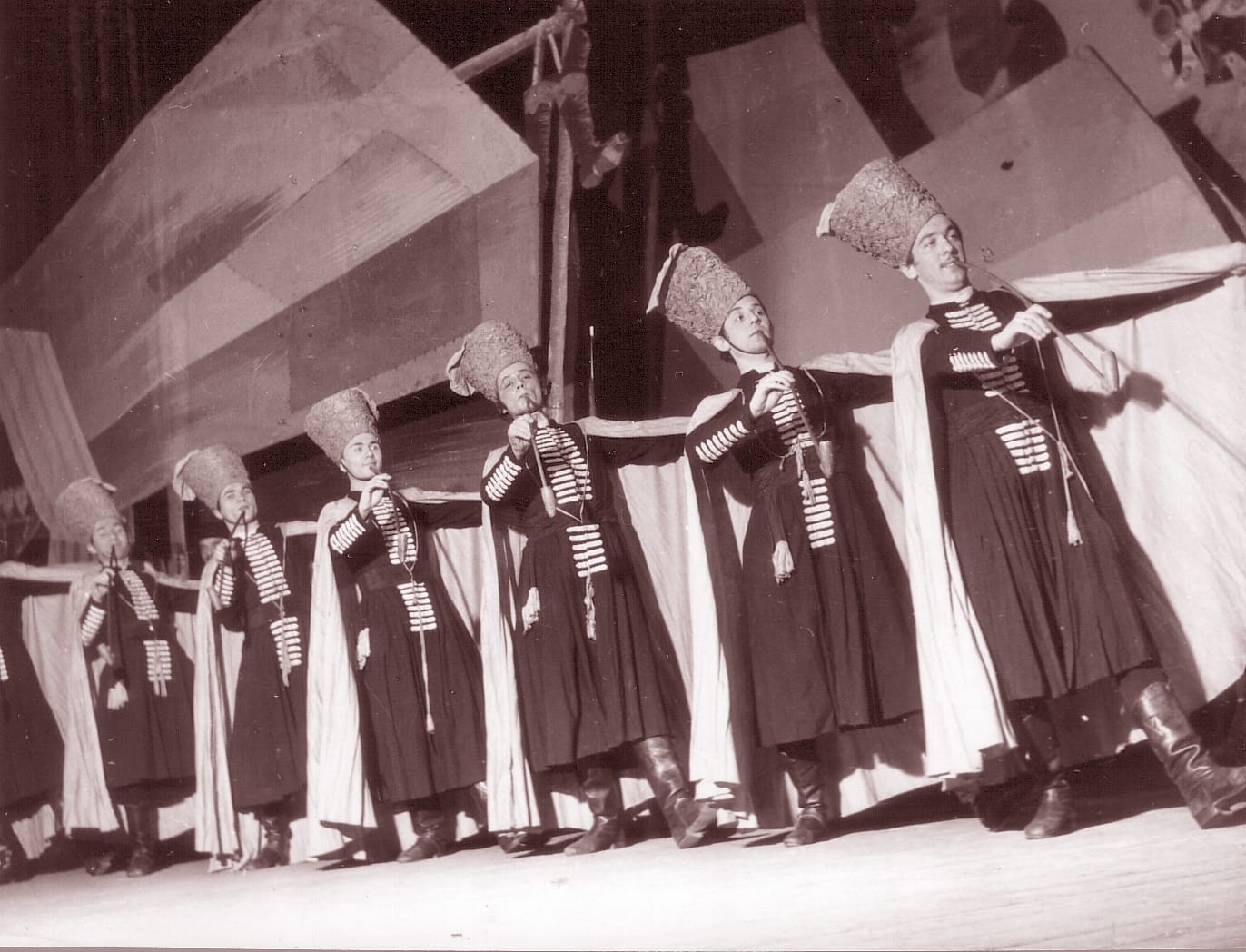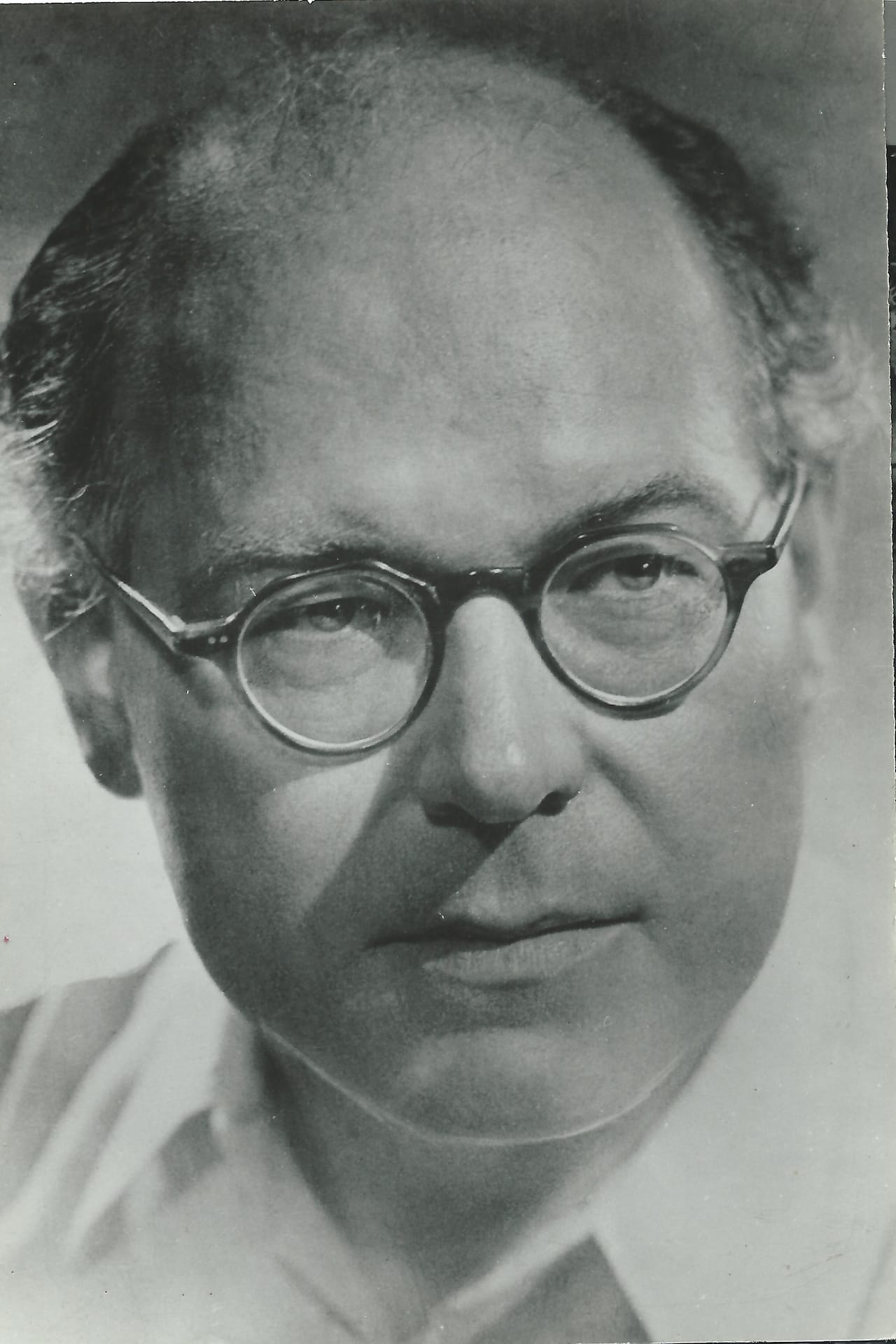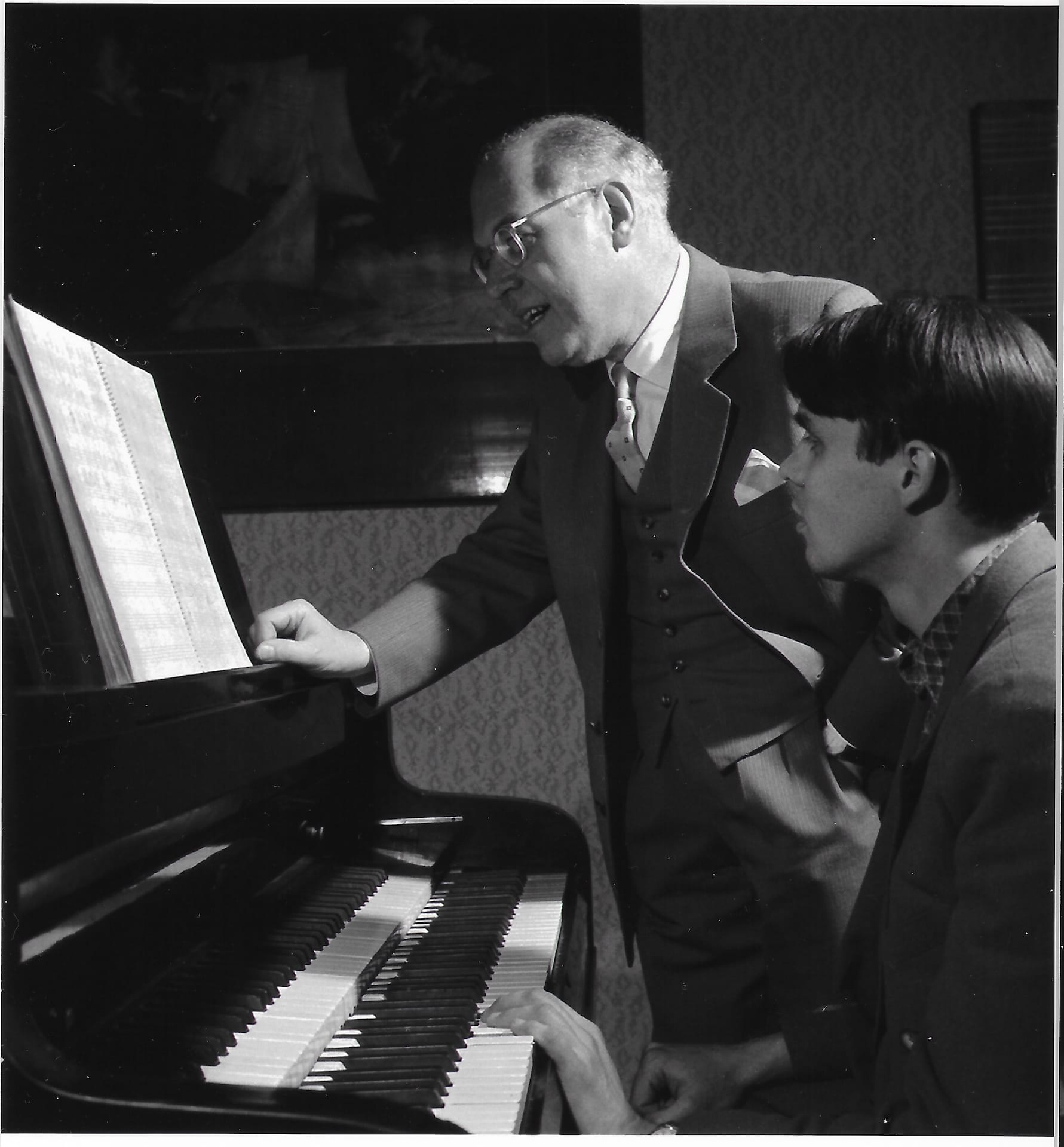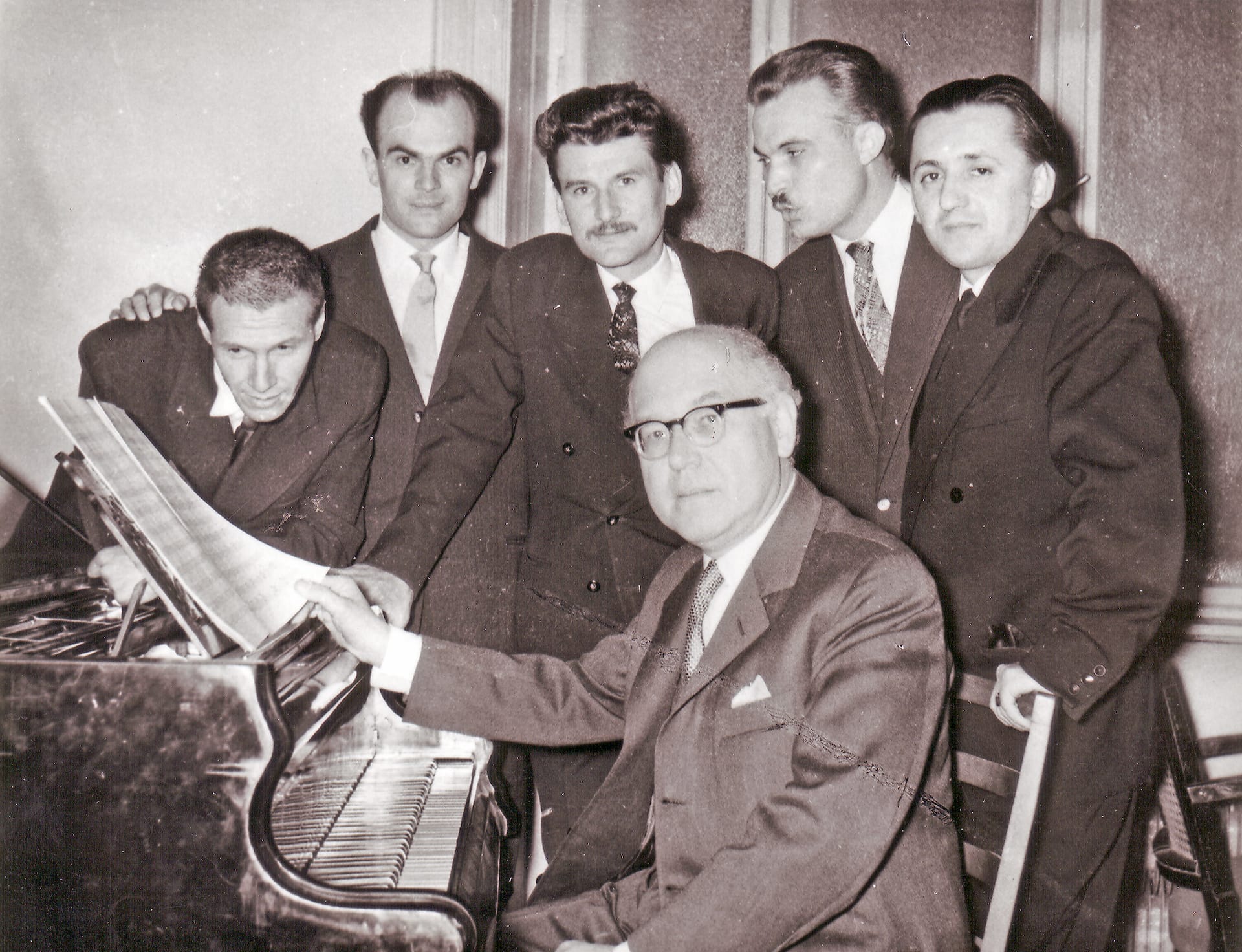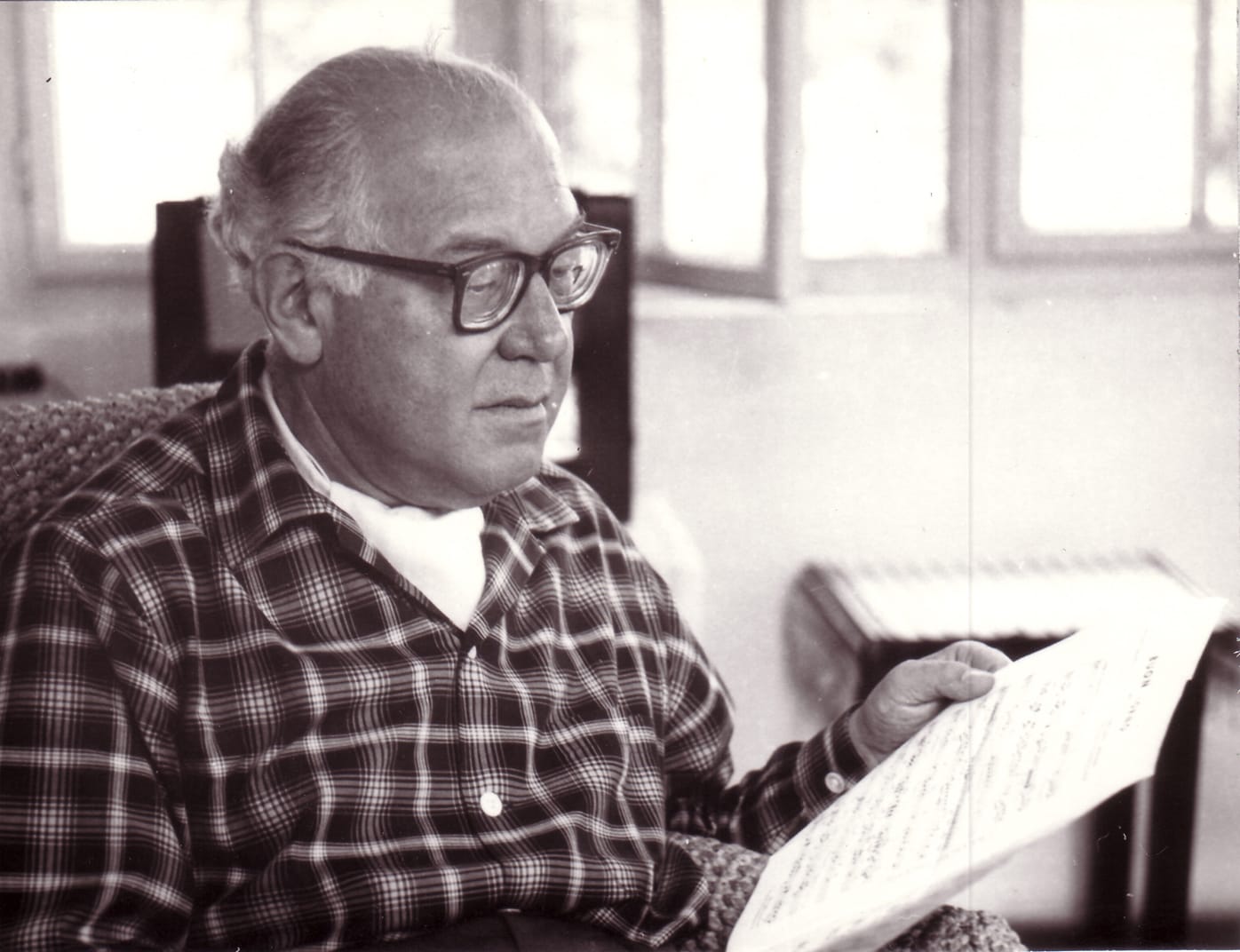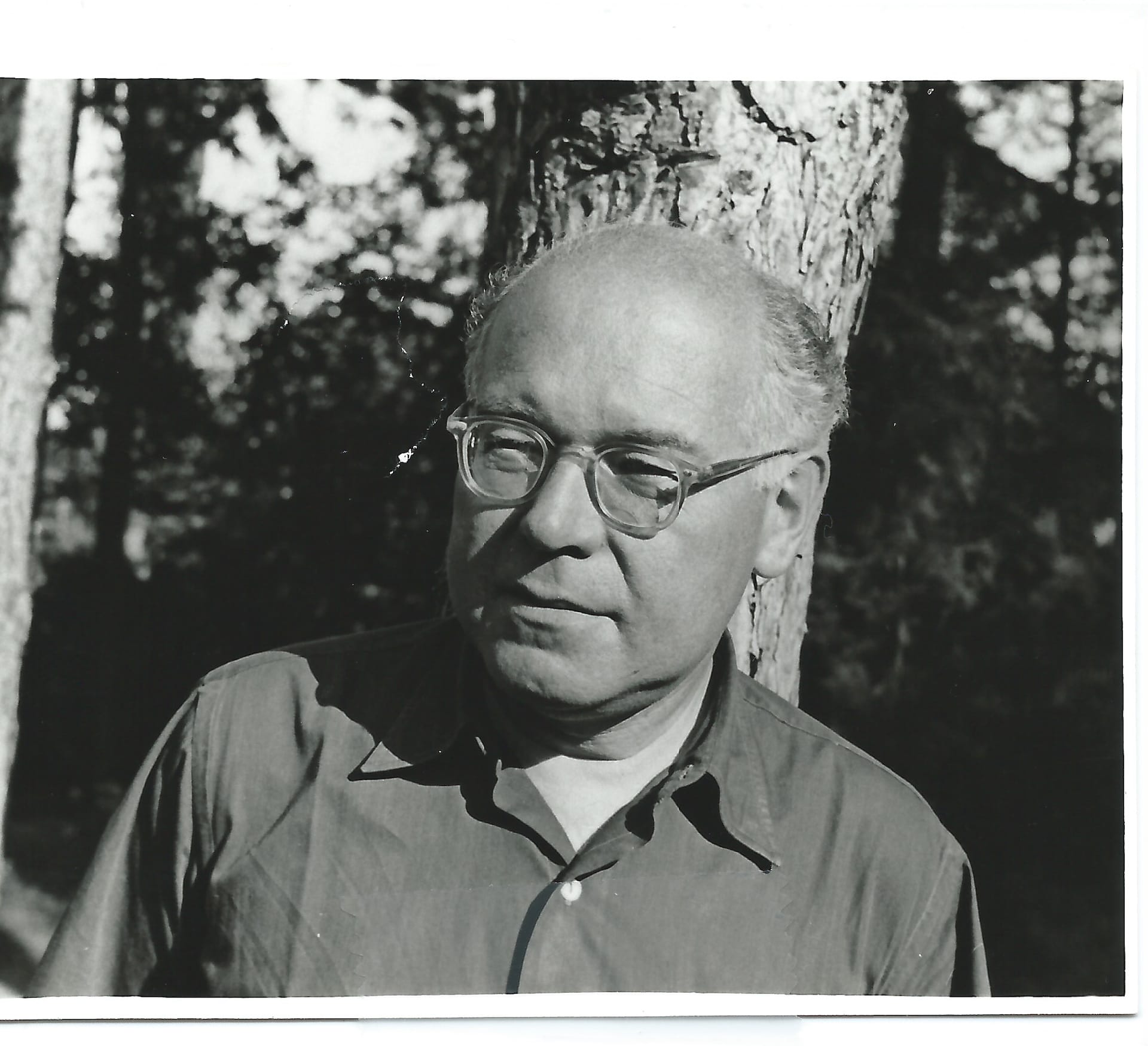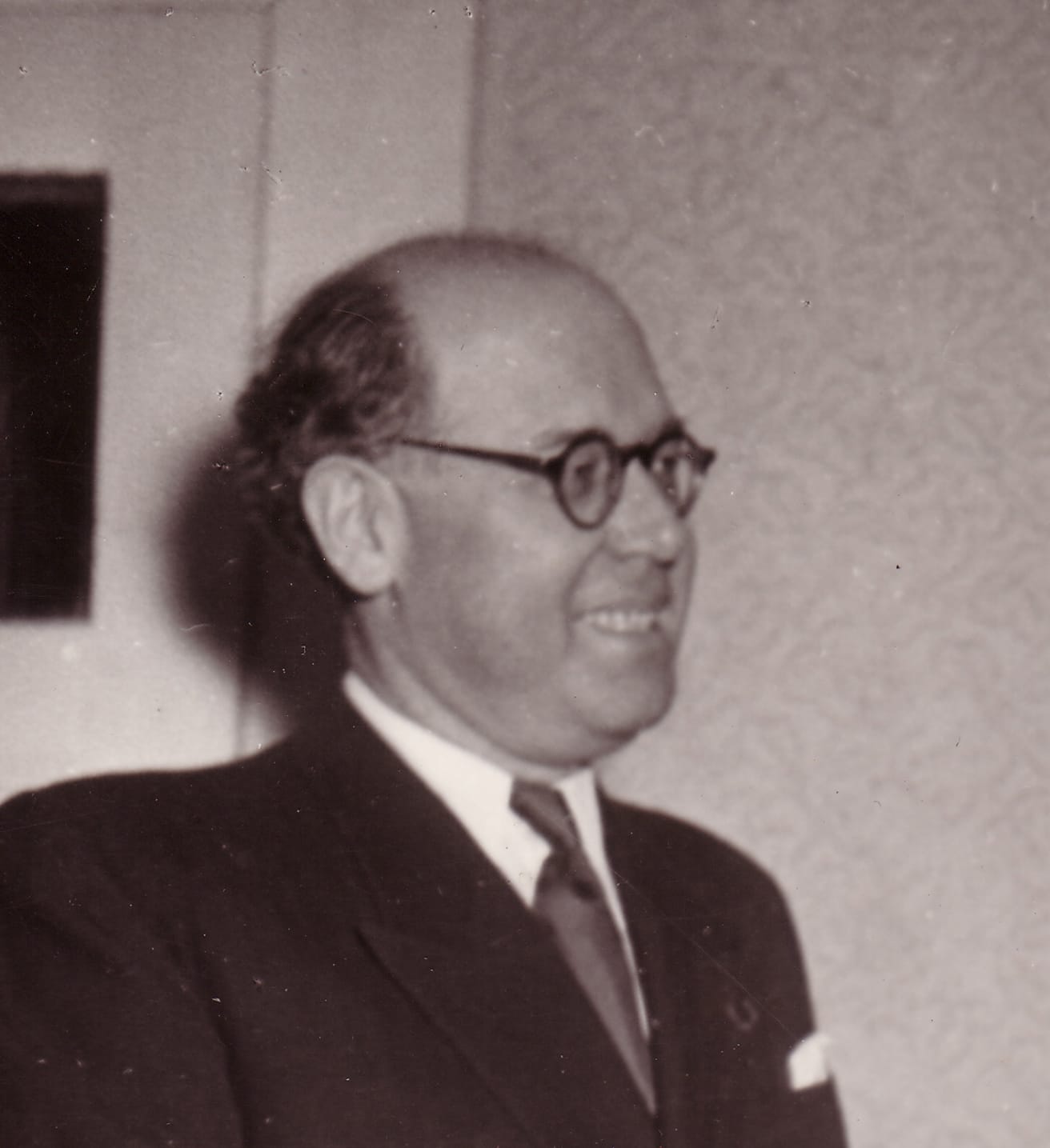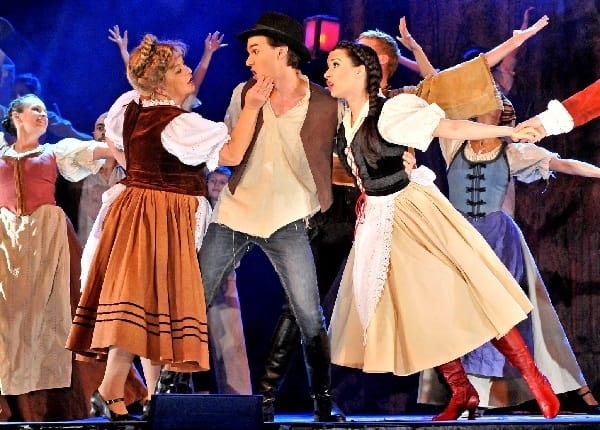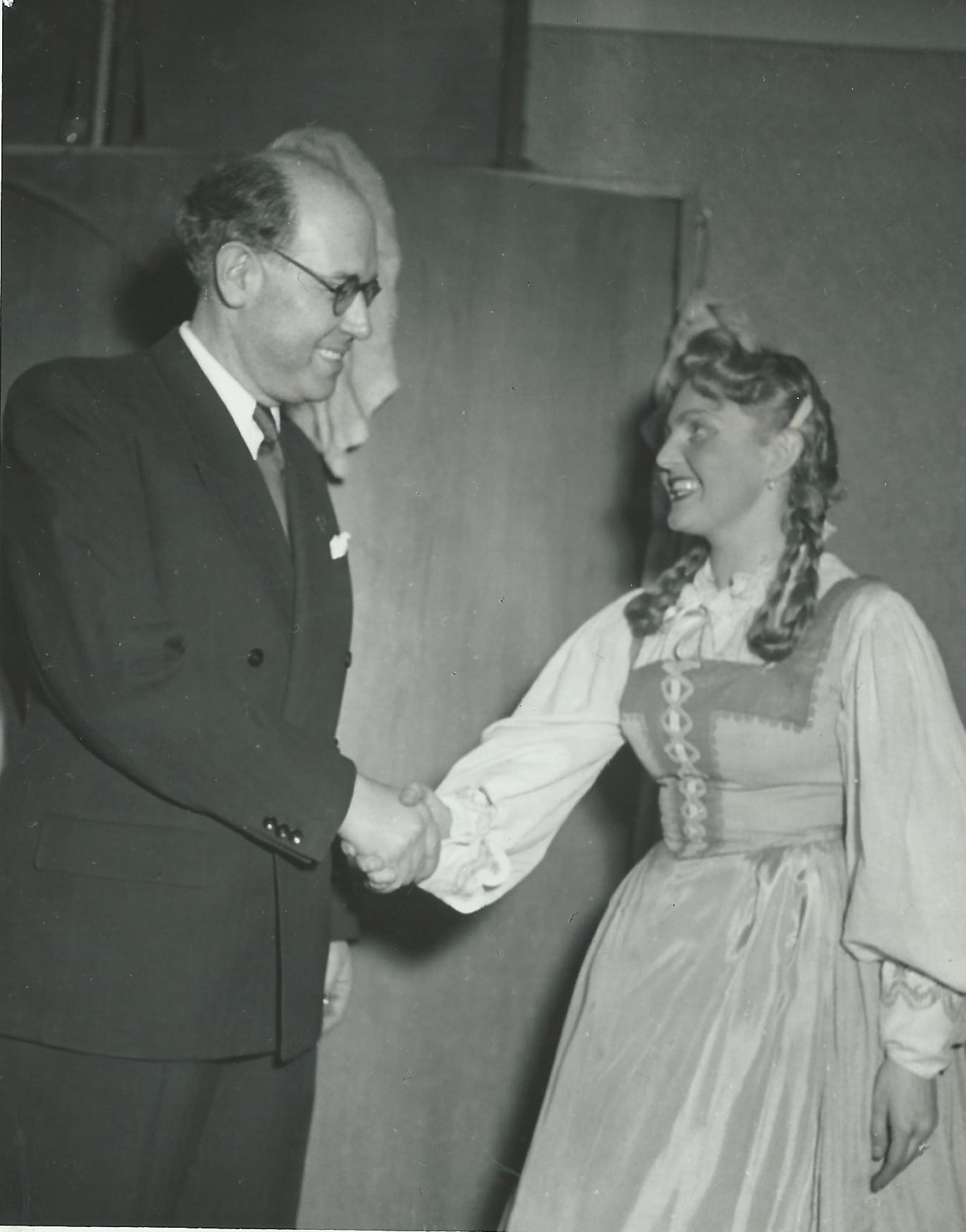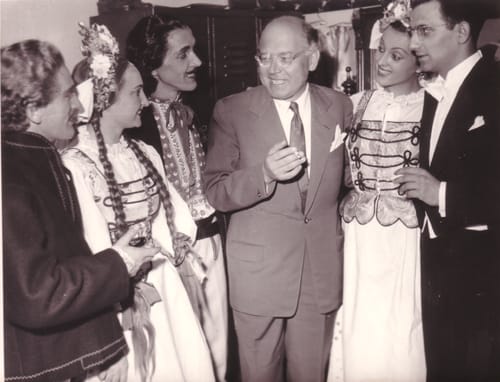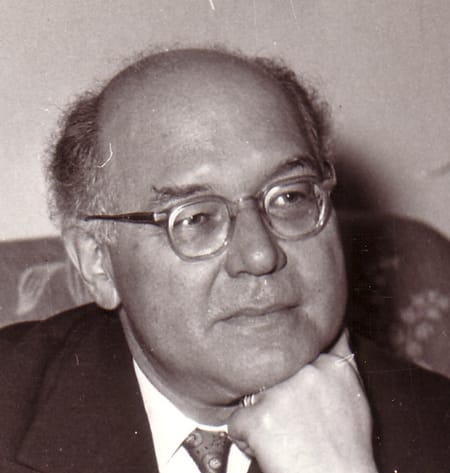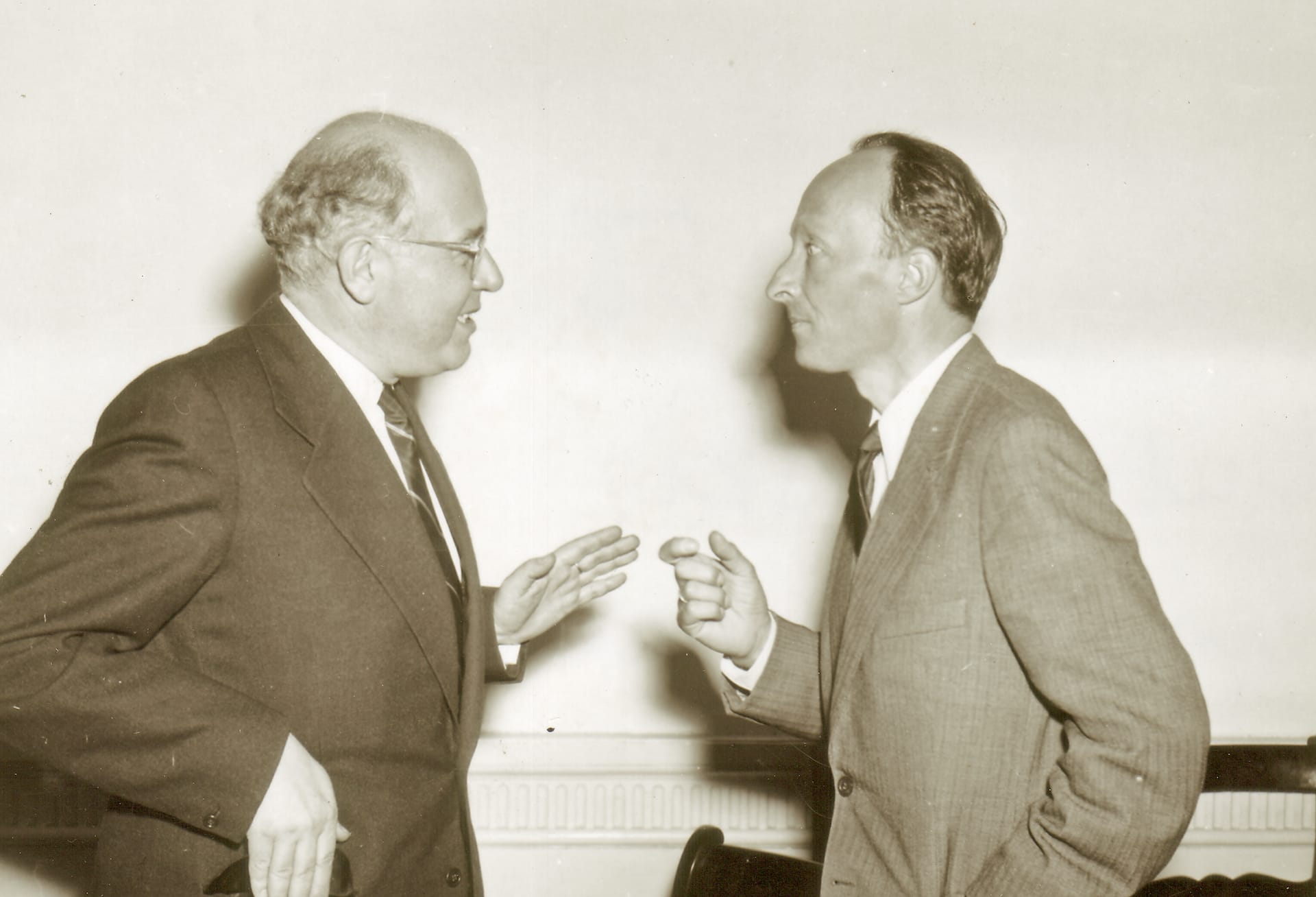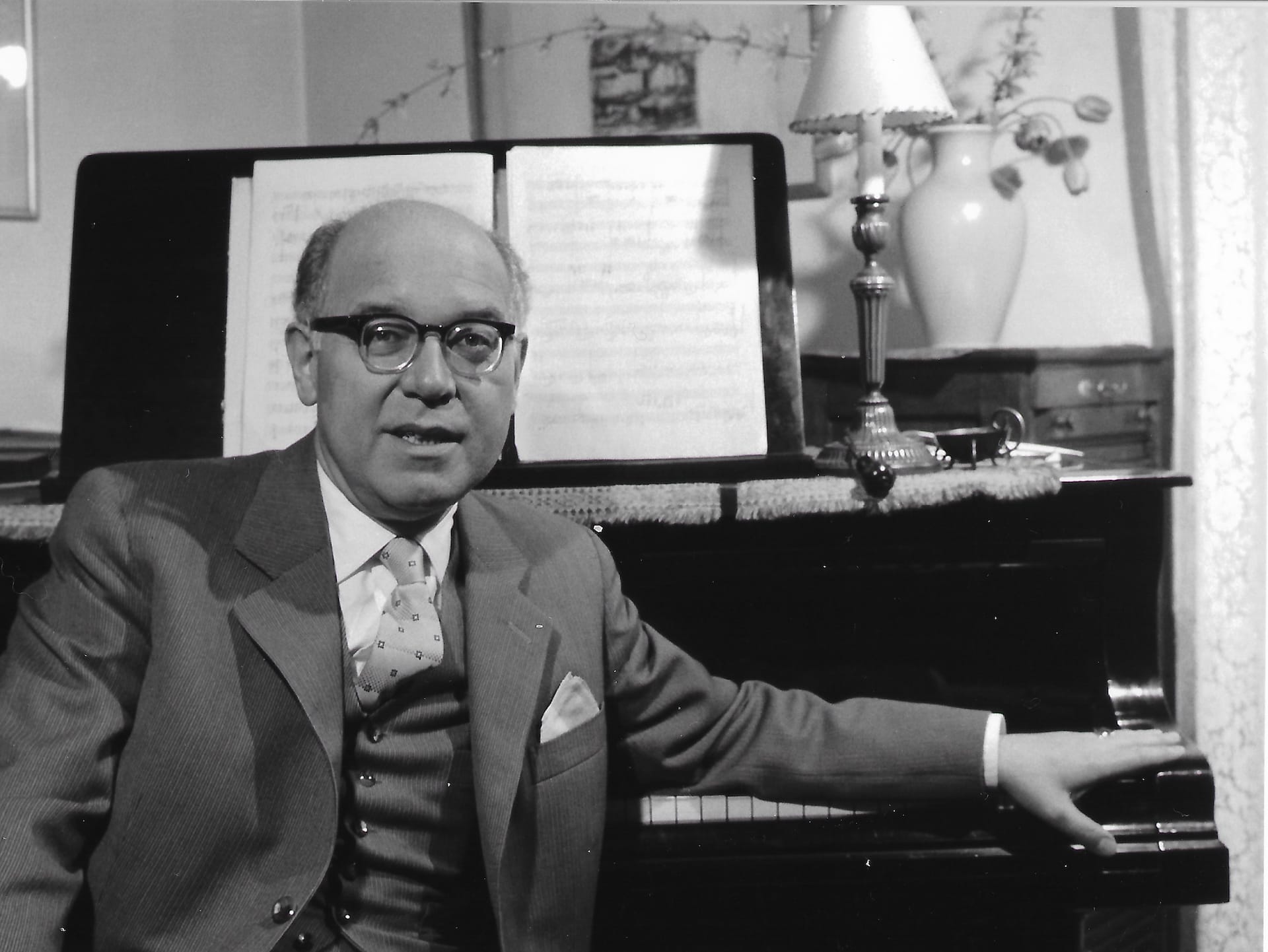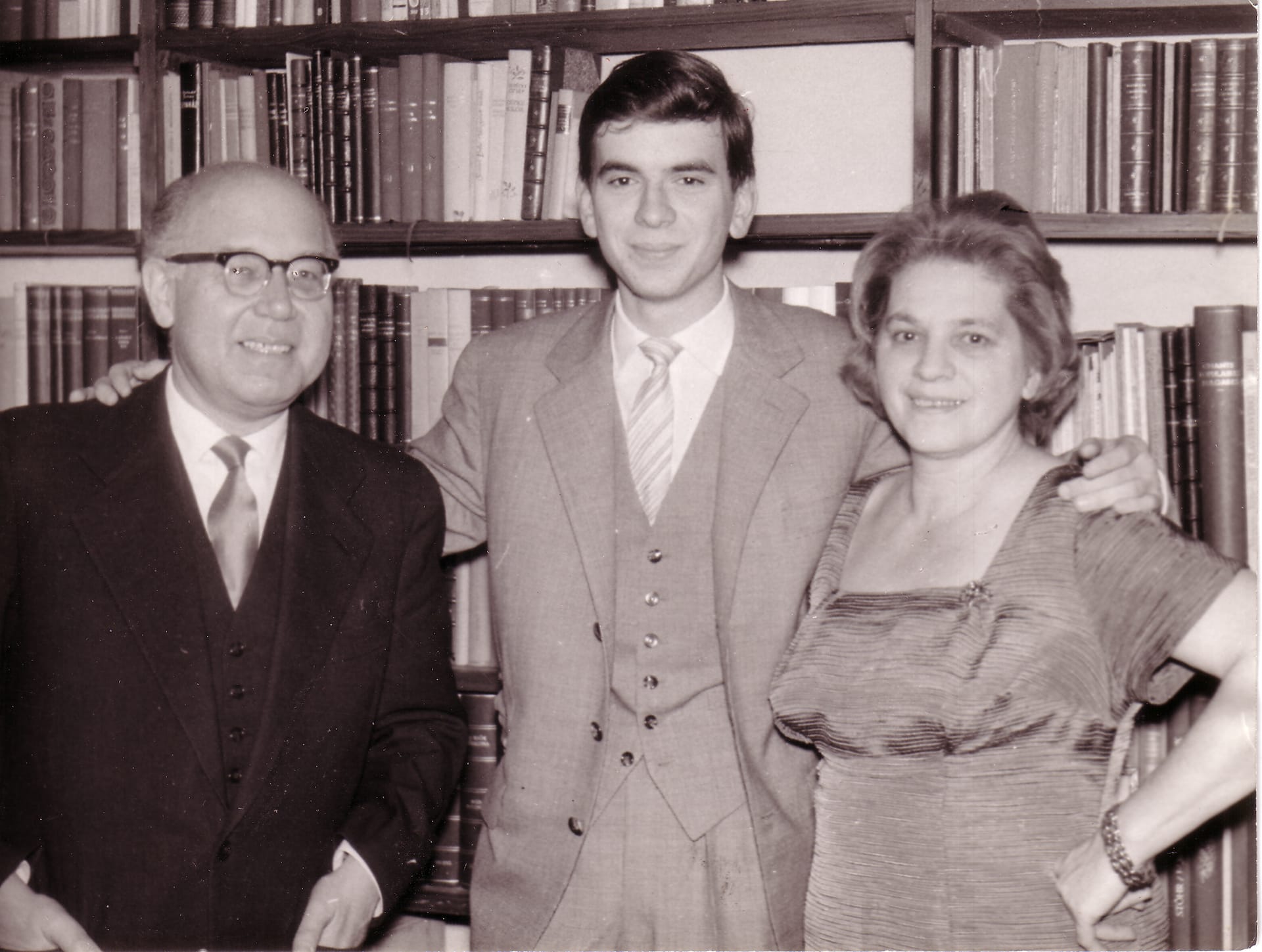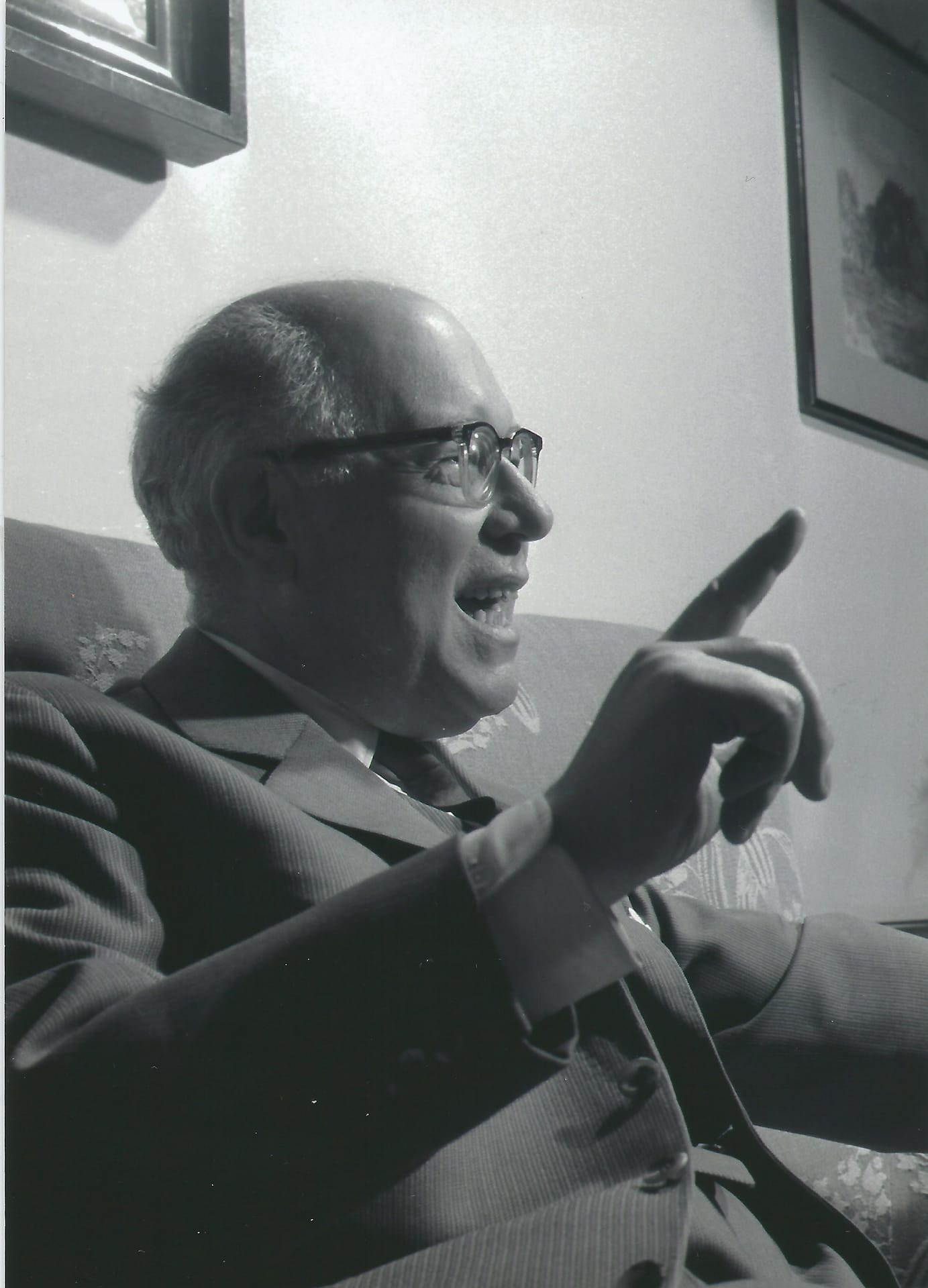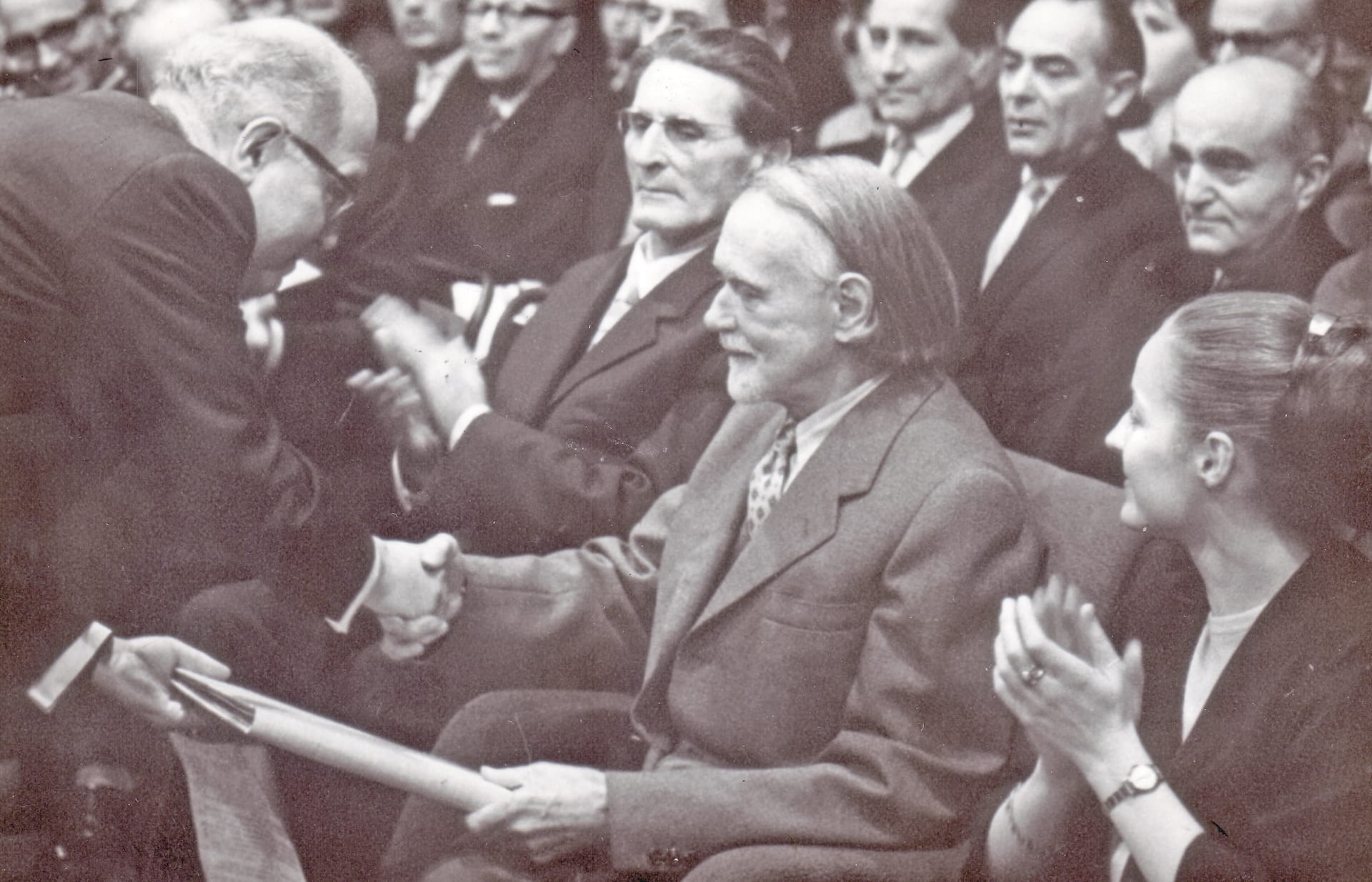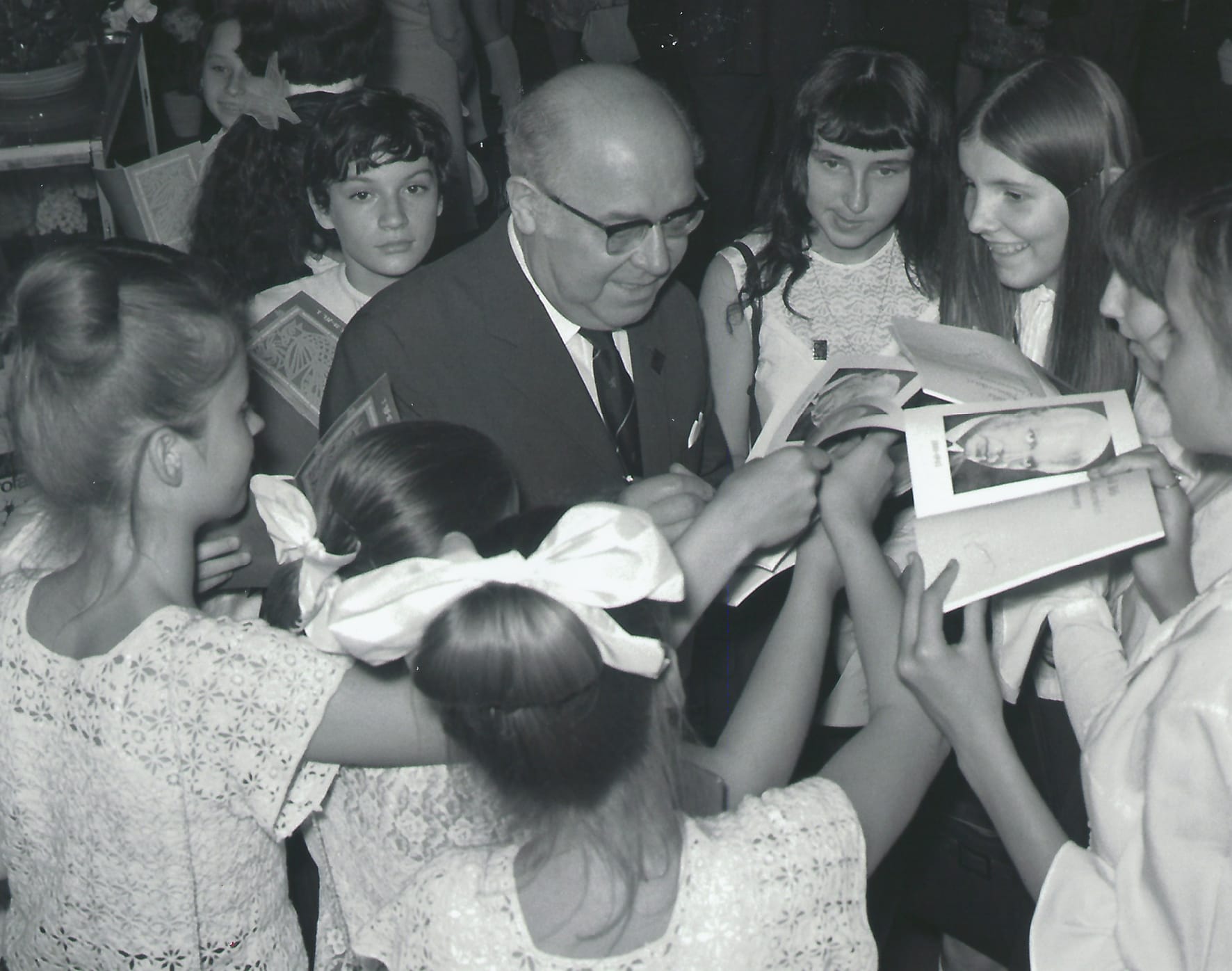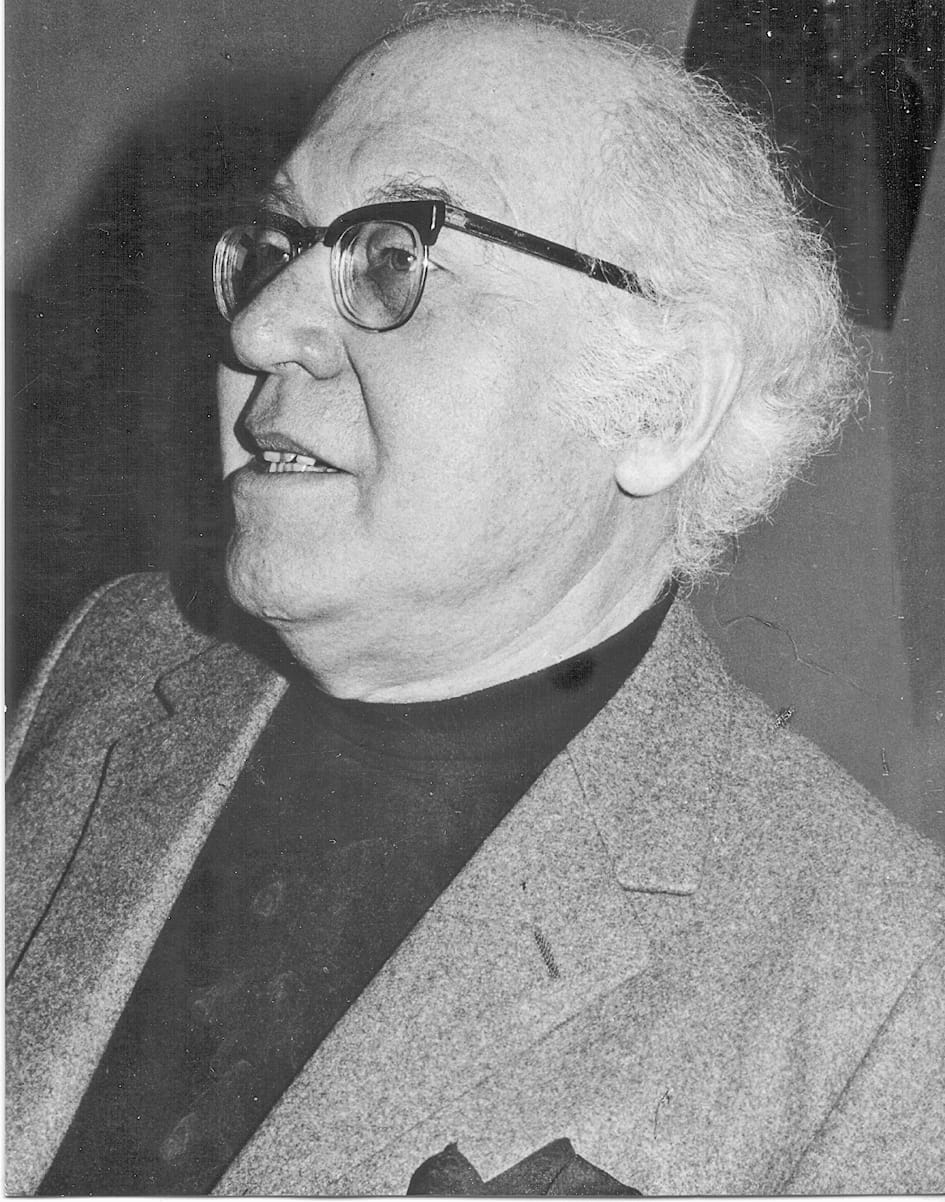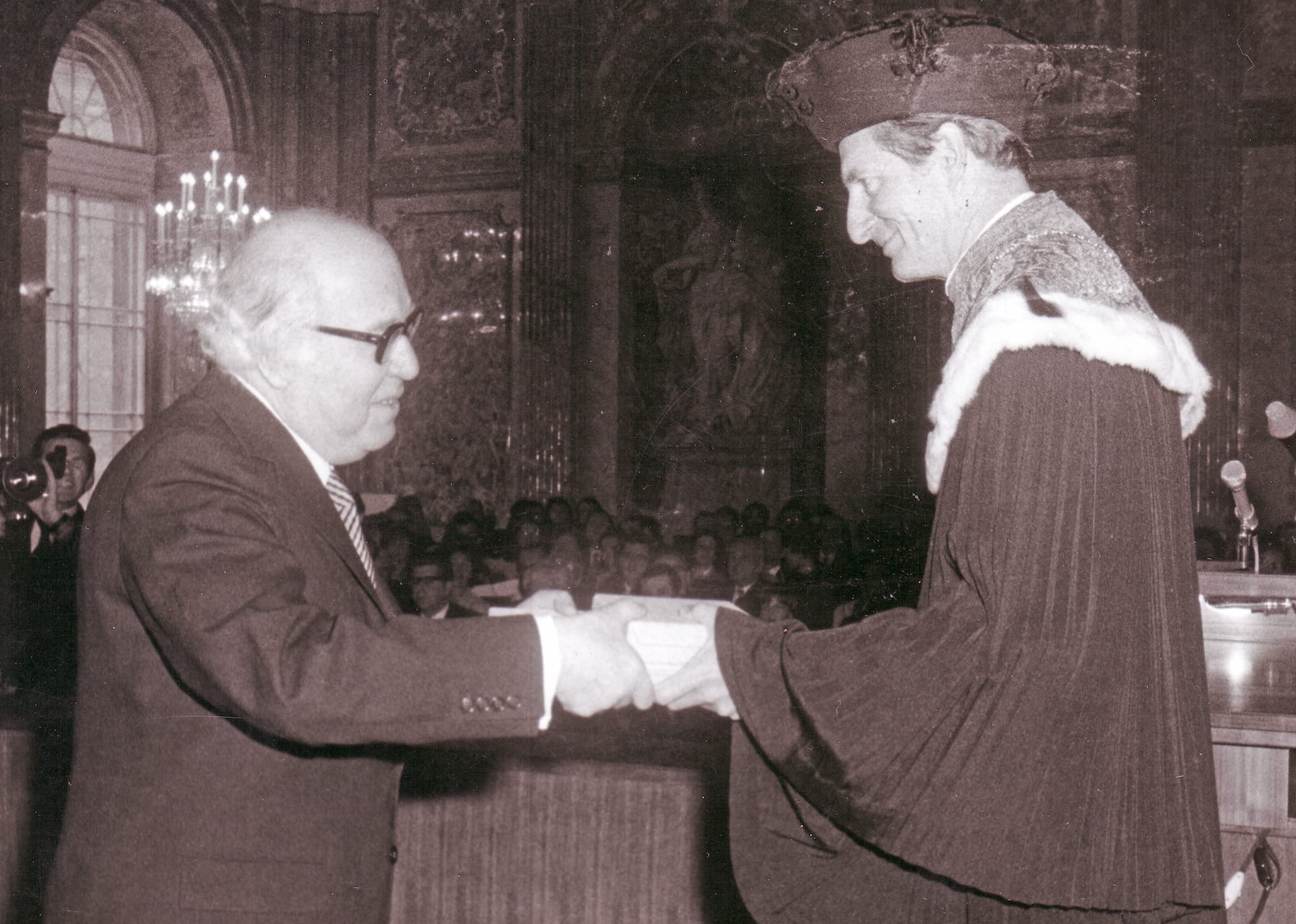A musical journeythrough the 20th century
Ferenc Farkas, his life, his work
by András Farkas
Ferenc Farkas was born on December 15th 1905 in Nagykanisza, a small village in north-west of Hungary.
His life covers almost a whole century during which he lived 2 world wars, 2 revolutions, the fascism, the communism and finally, a free and sovereign Hungary. He died in Budapest on october 10th 2000, aged 95.
His huge work (about 800 titles) has played a leading role in the evolution of hungarian music of the 20th century.
Ferenc Farkas studied composition in Budapest with Albert Siklós and Leo Weiner . After working some time as a “repetiteur”, he went to Rome to study with Ottorino Respighi (1929 - 1931).
That was the time when he discovered his true artistic identity. Respighi introduced him to different forms and styles of Italian music.
He also transmitted to him his virtuosity in the art of instrumentation, his taste for orchestral colors, his passion of ancient music and his vision for the modern art.
In Rome, Farkas became familiar with latin and mediterranean cultures, including painting and poetry in which he showed interest since he was child.
After two years of studies, he went back to Budapest.
When I returned from Rome, I thought the world is mine but soon I understood that I will not succeed to find a stable job.
As the Great Depression was being felt heavily in Hungary, Farkas only found odd jobs like theatre co-repetiteur, choirmaster and music teacher.
In 1933, his meeting with the world-renowned hungarian film director Pal Fejős gave him his first experiences in the completely new field of cinematography. During their collaboration, Farkas composed the music of 6 movies and 25 short films on Madagascar.
He took advantage of this situation to travel and discover Europe and its cultures: for shooting interests he spent 2 years in Vienna, 2 years in Copenhagen and cruised around the Mediterranean during the winter of 1933-34.
Farkas continued to compose film music for other directors until 1973 (73 film music).
Ferenc Farkas returned in Hungary for good in 1936. His first real public success happened in 1937 with his Concertino for harp .
It was also the time when he started his long collaboration with theater and radio. He composed incidental music for some 40 plays by hungarian and foreign authors like Madách, Vörösmarty, Shakespeare, Calderón, Moliere, Rostand, Aristophanes, Goethe, Lope de Vega…
This was for Farkas an unlimited field of experimentations. He will often use this music to compose other works.
The Second World War broke out in 1939.
In 1941, I was appointed professor of composition and director of the National Theatre Choir at the Conservatory of Kolozsvár, the capital of Kolozs County (now Cluj-Napoca).
For me, this meant an official state position and a substantial increase in my financial income. I was more than 45 years old and I finally obtained a full time job
The first opera of Farkas, The magic cupboard , which dates from that time, brought him national celebrity and fame across borders.
Summer 1944, the Soviets enter Hungary.
The town having suffered its first bombardments, we were ordered to flee the county. When I tried to escape, there were no more trains.
I did not reach Budapest and my family until the beginning of October.
Farkas composed a Symphony in memory of the liberation of Budapest by soviet troops in April 1945.
The first years of peace were very trying. We were on the verge of famine.
Yet, for Farkas, they were years of intense activity. During this period, he composed several important works : the ballet The sly Students , the Cantata lirica , Musica pentatonica for string orchestra , the Concertino for piano and orchestra .
In 1946, for my son’s first birthday I set to music a little “Lullaby” which I pulled from Sándor Weöres cycle of poems “Fruit Basket”.
Then with the other poems from the cycle I formed little by little a group of twelve songs which I entitled, like the poet, Fruit Basket .
Farkas was the first, in Hungary, to use dodecaphony in his Preludio e fuga for orchestra (1944-1947).
Appointed professor of composition at the Budapest Music Academy in 1949, Farkas held this post until 1975. His leitmotif, in his pedagogy as in his work: Hungarian culture and Europe.
He also inspired his students with a new interest in opera, thus contributing to the renewal of this repertoire in Hungary. he counted among his pupils:
György Ligeti, György Kurtág, Emil Petrovics, Sándor Szokolay, Zsolt Durkó, Attila Bozay, Miklós Kocsár
In 1949, the Communists seized power in Hungary.
For fear of sanctions, I stopped using dodecaphony.
To provide for my family, I accepted many orders.
To comply with the new “Socialist realism” obligatory artistic current, I composed many works on popular themes, and I set myself the objective of reviving the old court music, which had been completely forgotten.
My Early Hungarian dances from the 17th century have since been around the world.
In 1950, a first Kossuth Prize was awarded to Farkas for his opera: Csínom Palkó .
This work had an enormous impact throughout Hungary and the neighboring countries. Many identified with the heroes of the play, fighting alongside Prince Rákoczi for their freedom.
With the Kossuth Prize, Farkas’ financial health improved, and his works were performed in all communist countries.
1956
A Nationwide revolution against the regime and its policies was imposed by the Soviets. It lasted a month before the Communists regained power.
With my family, we remained locked up in our apartment for several weeks, listening with anguish to the unfolding of events on the radio. I was so tense that I was unable to compose a single note.
In 1959, he composed his most important cantate: Cantus Pannonicus
Under the communist regime, it was not recommended to approach sacred music.
My first mass dates from 1962. I can say that I wrote it “clandestinely”. Not being intended for any specific choir, I composed it very freely, letting my emotions speak and I dedicated it to my son András.
With age, Farkas focused more and more on the human voice. There is no important hungarian author, old or contemporary, that he has not set to music. Thanks to his knowledge of languages, he was also inspired by the greatest poets : Petrarch, Baudelaire, Goethe, Shakespeare, Camoes, Gongora, Virgil, Omar Khayyám… He composed in sixteen different languages
Ferenc Farkas died in Budapest on October 10th 2000.
From the start, I got involved in all music’s areas; I did not want to create just a little corner in a bedroom with personal and refined taste, but small and large spaces with different layouts, pleasant to live in, with the windows wide open”.
The texts in italics are excerpts from the book
Mon père m’a raconté…
La vie du compositeur hongrois Ferenc Farkas
Hungarian version:
Valomások a zenéről
